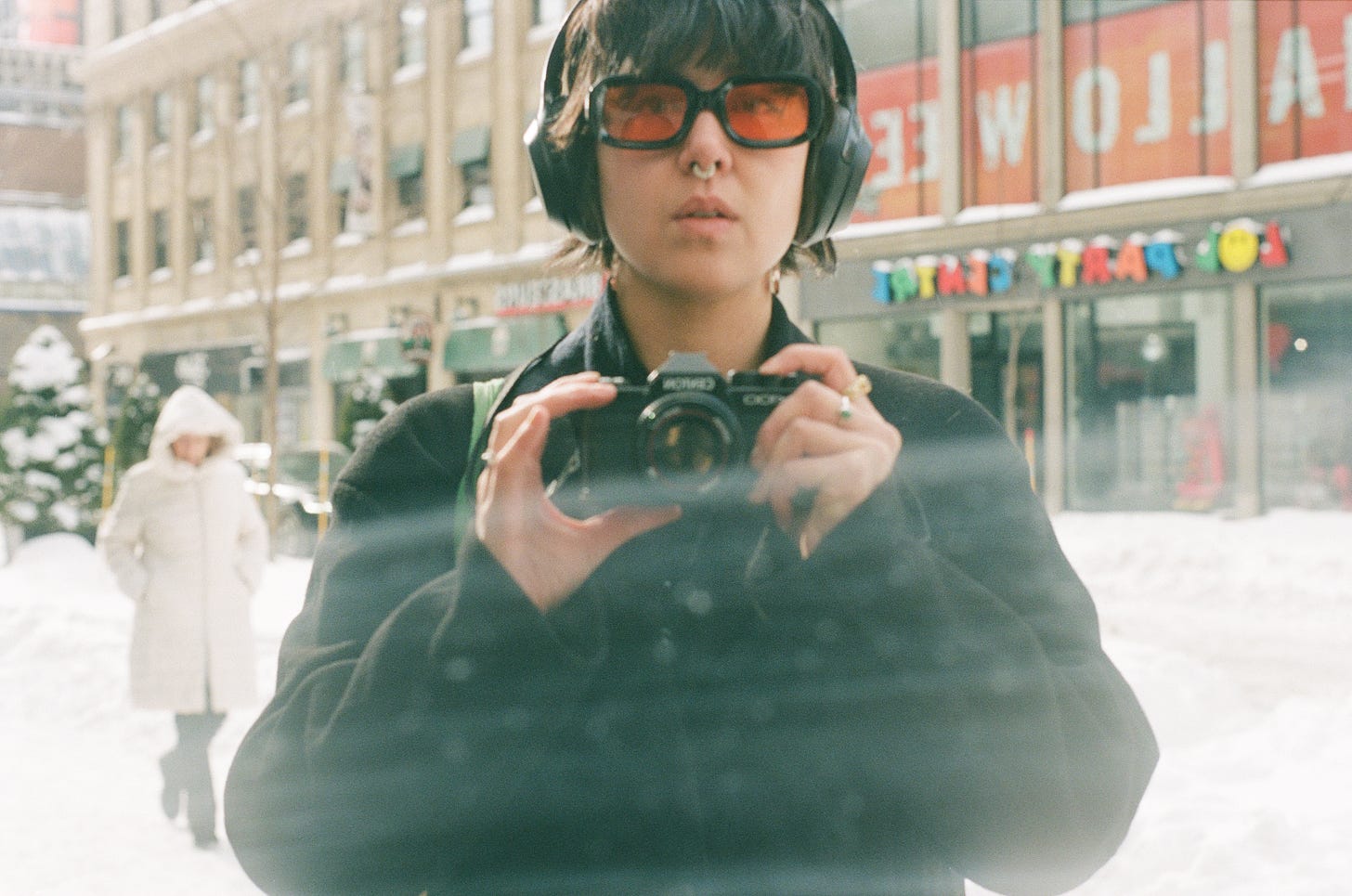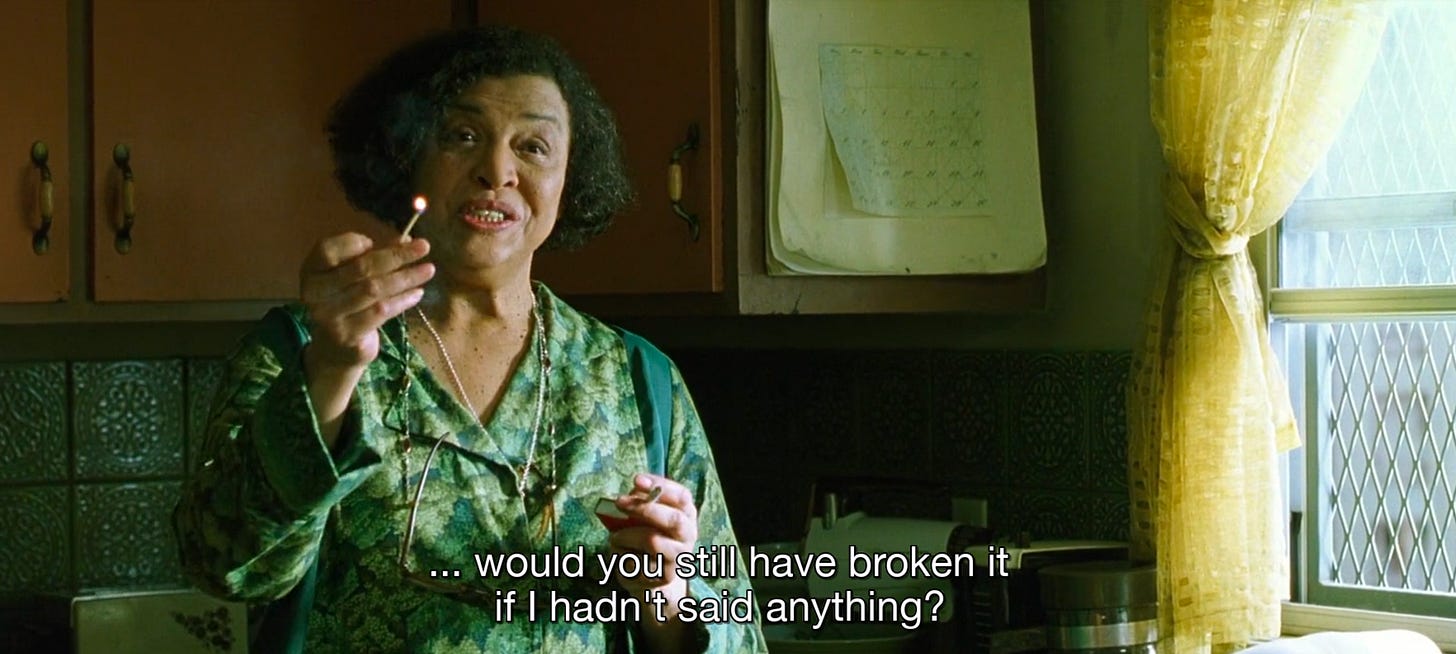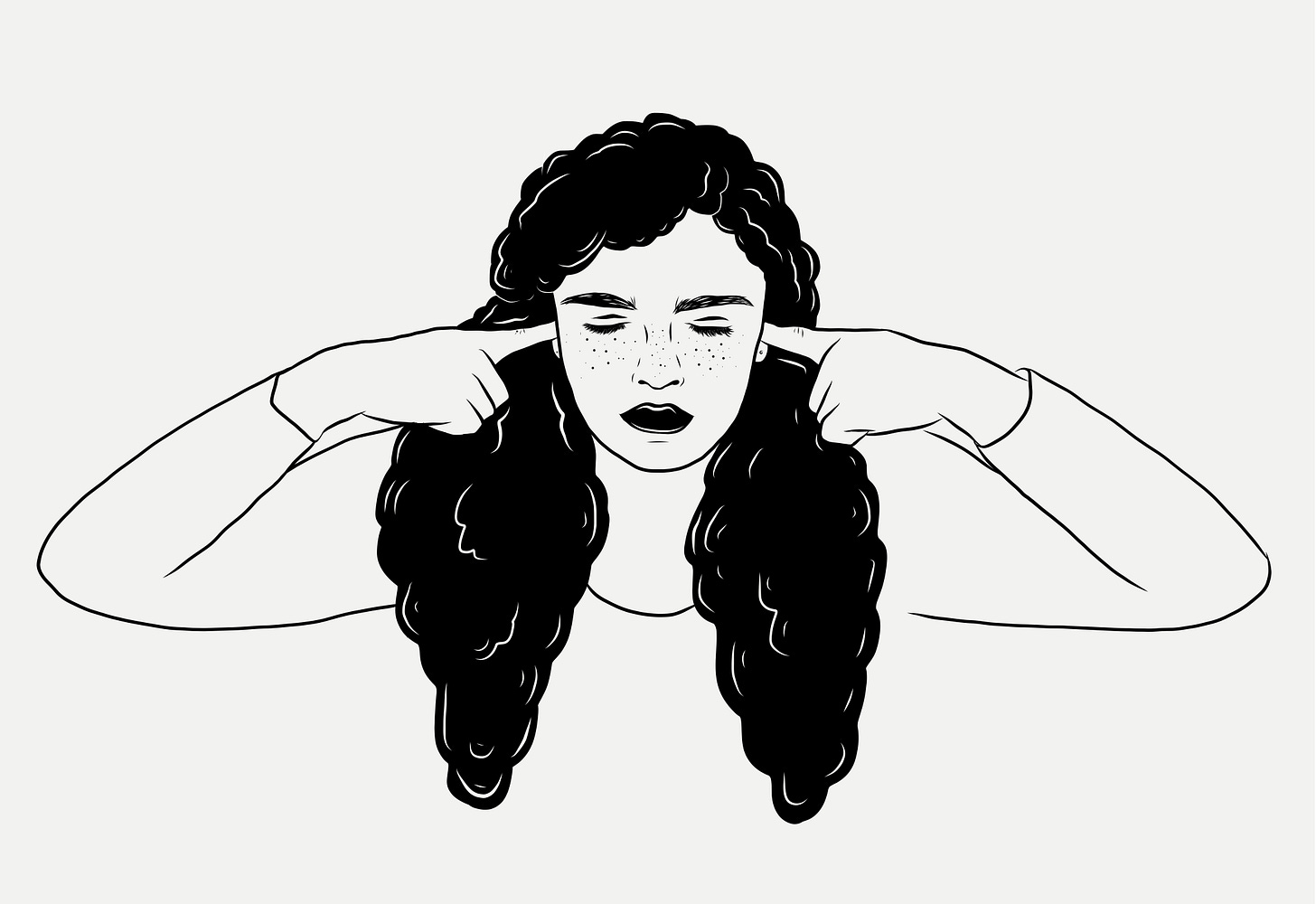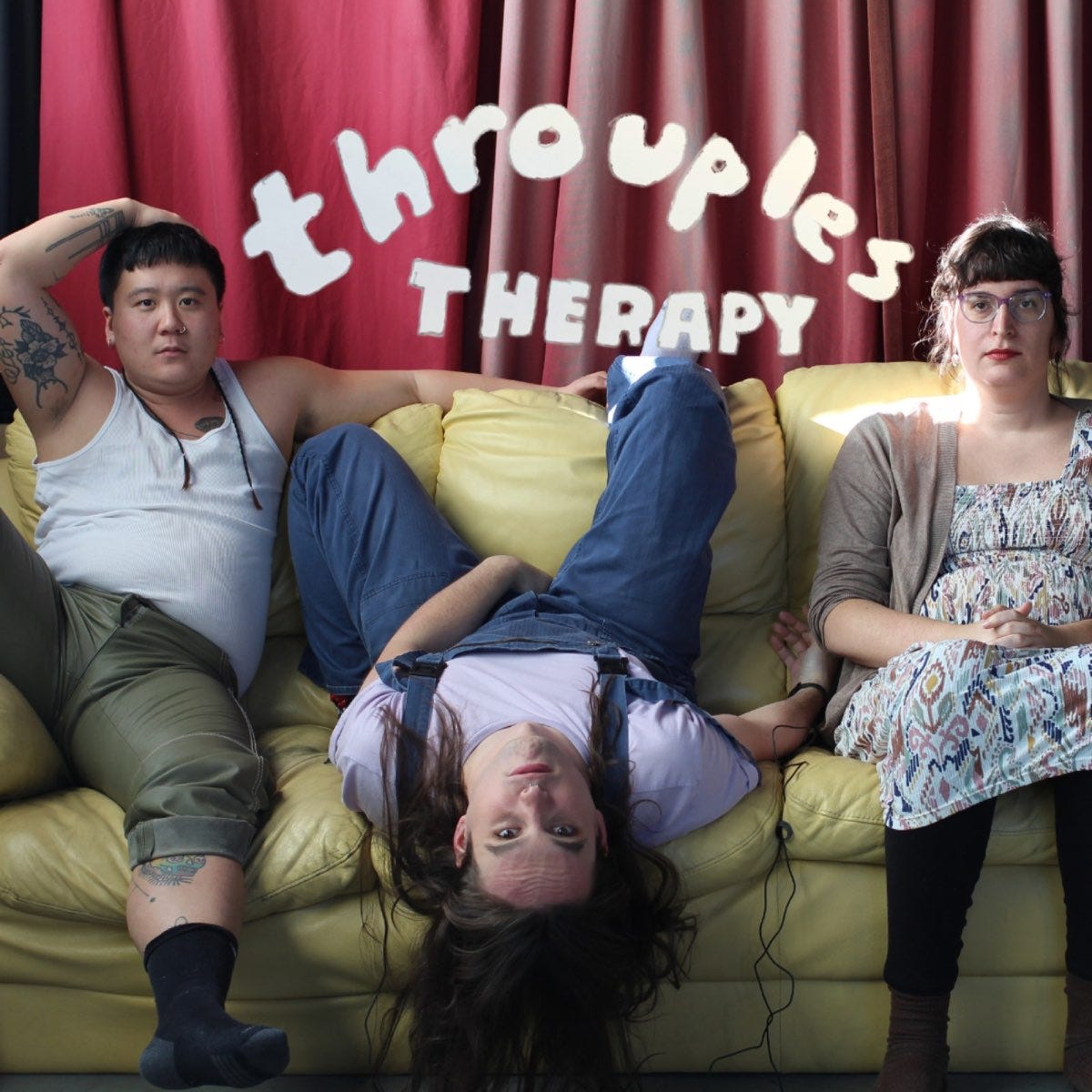
It’s Monday, March 3rd. And as my friend Mary said, Spring 2025 is giving Nosferatu 🧛🏻
It’s been quite a time — to say the least — for those of us living in North America.
The US president’s recent inauguration has brought with it a cacophony of egregious political decisions, leading to the mild to serious disintegration of the world as we know it (again) and the dismantlement of the US administrative state.
With this in mind, this month I’m keeping things fun & lite 🌝1
<3 love online </3: a zine revisited
I’m beyond thrilled to be rereleasing a zine I co-curated in 2018: <3 love online </3, an exploration of how the internet has transformed dating. Keep reading to learn why this project was a must-make, how to access it (digitally & irl), and three dope ass things I think you’ll also love.

The Origin Story: <3 love online </3
In 2018, I faced a reckoning with the trashfire that is The Internet and emotions and humanity. In 2018, I was angry. In 2018, I was still not over a guy I had had a three-month fling with the year before.
I was 28 and for the life of me, I could not figure out how to move on when digital traces of a relationship were everywhere. How do you let go when your FBI-level stalking skills keep pulling you back into someone’s orbit?
The last time I went through a breakup before this was 2010. Cutting ties was easier back then. People didn’t have 10+ social media accounts. Tinder didn’t yet exist. We were still in the golden age of Facebook, Tumblr, and LiveJournal (rip).
My three-month fling was with a boy I met in Boston in the summer of 2017. In those few months, our digital lives became deeply entangled — Facebook, Instagram, Signal, Gchat, Snapchat. I regularly lurked his website (he was an architect). We shared tons of photos and Google photo albums.
It took forever to get over him, and a huge part of that was the endless digital remnants of our relationship. Eventually, after some prodding, he agreed to delete our photos for the sake of my privacy. But months later, I still found myself scrolling through his profiles, looking for clues about his life — wondering if he ever thought of me, too.
And then, an aha(!) moment: I posted an Instagram story asking if anyone else found breakups harder because of social media. A friend slid into my DMs with a poem about the exact same thing.
Damn, I thought. I need to curate a zine about this. I knew that this project would be one integral step in helping me recover from my rumination over and socially-acceptable-but-still-unpleasant addiction to Boston boy and all that he represented.
So began the journey that led to <3 love online </3 — a project I’m so excited to share with you again today.

Why This Zine is Dope
I’m so incredibly proud of the <3 love online </3 zine, which you can peruse online here. This zine brings together over 20 artists — writers, poets, illustrators, new media artists, and more — from Canada and the U.S., all exploring how the internet has shaped romance, intimacy, and sex.
Centred on queer and/or BIPOC voices with ties to Montreal, the zine is, at its heart, a love letter to the internet — as much of a trashfire as it may be 💗
A few highlights I think you’ll especially love:
Lorax Horne on long-distance dating before and after the internet in a country where being gay was once illegal
Lucia Ceta’s tender, watercolour-drenched vignettes capturing the loneliness and commodification of dating apps
Lukas Rowland’s heartwarming story of Montreal gay love
Poetry by Shivan Sahib and co-curator Gabriella Kassel Gomez that playfully unpacks the performativity, ennui, and longing of modern romance ❣️
Stunning illustrations & visual works like Tricia Robinson’s that embody the tensions, joys, and pains of romance, sex, and intimacy online 💀
It Takes a Village
Bringing <3 love online </3 to life took a small village. Here’s how I did it:
Worked with incredible co-curators: Gabriela Kassel-Gomez, Maggie Haughey, and Anna Ma
Created a call for artists + built a website and social media accounts
Secured funding from the now-defunct Digital Justice Lab (shoutout to Nasma Ahmed)
Selected and edited submissions, focusing on queer and/or BIPOC voices with ties to Montreal
Designed the zine in ol’ InDesign
Launched it at the CtrlZ.AI zine fair in Barcelona on January 30, 2020 👾
Read The Zine, Get a Physical Copy
And now, <3 love online </3 is back! 🥳 Please do read and delight in this fabulous collection of writing and art.
Want a physical copy? That is definitely the best way to experience this zine. Email me! Pay what you can + cover shipping, and it’s yours 🌟☺️❤️🔥
In the coming few years, I’ll also release a zine that explores my personal experiences of incest (see The Grammar of Confidence) as well as a zine that explores psychosis.
I’ll def keep y’all posted. Thank you for your support now and in the future — it truly means the world.
Three Things I Love 😍
City of Clowns by Marie Davidson (Deewee)
Anyone who knows me knows that I am a mega stan of Montreal’s Marie Davidson. What’s not to love? — she’s an electronic musician, DJ, and producer who sings about her eroding mental health, working your ass off, and how, at the end of the day, we’re all just clowns trying to avoid surveillance capitalism while having fun in life.
Marie just dropped her sixth studio album — City of Clowns — on February 28, 2025. And I was there to witness the LP launch at the SAT in Montreal the same day with dope friends. I danced like the world was going to end.
Driving, dark, and often angry beats; New Order-esque vocals; biting lines like “All roads lead to hell” and “troubleshoot until you die” — there’s not much more the world needs right about now, frankly.
Released by a fabulous record label — Deewee — run by some rad old Belgian guys, top tracks for me include Demolition, Sexy Clown, and Fun Times. Listen here or wherever you get your tunes — and do tell me if you rage-love the album just as much as me, please.
Throuples Therapy Podcast
Montreal feels like a giant village full of abandoned and broken toys — and I am proudly one of them.
Two of my fellow queer, abandoned toy friends — comedians Kě and Raquel Maestre — have teamed up with musician and new media artist Eve Parker Finley for a podcast I know you’ll also love: Throuples Therapy.
Launched last month in February 2025, this podcast is a time (laudatory). A few golden lines from episode 2:
Kě: “You are a divorcée”
Raquel: “Only in one country”I think it was Eve: “Are you ever accidentally transphobic?”
Raquel: “No never accidentally, it’s always on purpose”Kě: “Should we add divorcés to LGBTQ spectrum?”
Would highly recommend checking out Throuples Therapy on Spotify or wherever you get your podcasts®. Lord knows humour is more essential than ever in these times (derogatory).
AI, oracles, reality? Or that one scene in the Matrix with the Oracle
I recently rewatched The Matrix — which, in my opinion, is one of the greatest movies of all time — and I can’t stop thinking about the scene with the Oracle. It offers a fascinating window into the logics of AI, the philosophy of free will, and the construction of reality.

Don’t Worry About the Vase
Neo, still unsure if he believes he’s The One, walks into the Oracle’s cozy kitchen, bathed in warm emerald light. As she tells him, “Don’t worry about the vase,” he immediately knocks over the vase beside him. Flowers 💐 spill. The translucent green glass shatters into pieces on the linoleum floor.
"Shit, I’m sorry," Neo says, stunned. "How did you know…?"
Smiling, the Oracle says:
"What’s really going to bake your noodle later on is — would you still have broken it if I hadn’t said anything?"
The Oracle as AI
I love The Matrix for about 300 reasons, but high on the list is the fact that the Oracle herself is a form of artificial intelligence.
In this cinematic universe, the Oracle is the wisest one in the room. She predicts the future. She knows everything. She has all the data. And yet, she does something subtle but crucial: she primes Neo to act in a certain way — simply by pointing to a possibility.
Would he have knocked over the vase if she hadn’t planted the idea? 🌱
This moment feels eerily relevant in a world where AI and institutional storytellers are greatly shaping our perceptions of reality. A few takeaways:
Oracles (including AI itself, news media, and big tech storytellers) don’t just describe reality — they create it.2 By directing attention toward certain possibilities, they influence the choices people make.
The most powerful people (and technologies) in the world are the ones who claim that their interpretations — whether predictions, analyses, or narratives — are objective truths. But every ‘fact’ is entangled with interpretation.
At the end of the day, we will always — and forever — have our individual and collective agency and autonomy (just like Neo teehee) to fight for the reality that we want.
Until April, Folks 🌷
That’s it, friends. Thanks so much for reading. See you all in April. And until then, hope your Spring doesn’t stay too Nosferatu 👽
And if you haven’t already, subscribe now to this delightful publication. You won’t regret it 🌞
I’m co-curating an art exhibit on AI, oracles, reality that I wanted to write about this month, but I need a bit more time to scheme before I share about that publicly. Pray for me. It also takes a village — and a lot of good work — to make an art exhibit happen!
Scientific facts are not discovered, they are constructed. Check out the tome Laboratory Life by sociologists Latour and Woolgar to learn more about this.






